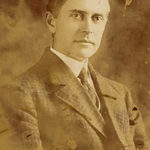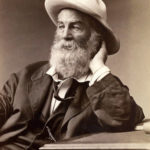Who was the American Bartok? The most plausible candidate, I would say, is Arthur Farwell (1872-1952), who led the “Indianists” movement in American music beginning around 1900. Here is a sampling – his “Pawnee Horses” for 16-part a cappella chorus, sung in Navajo. Farwell is one of the most fascinating figures in the history of American classical music. … [Read more...] about Who Was the American Bartok?
Whitman and Music: A Fresh Discovery
It’s said that Walt Whitman has been set to music more than any other poet save Shakespeare. Oddly, the most memorable of these settings may be by an Englishman: Frederic Delius’s Sea Drift (1904) and Songs of Farewell (1930). There are also notably affecting Whitman settings by Ralph Vaughan Williams and Kurt Weill. What about settings by American-born composers? An … [Read more...] about Whitman and Music: A Fresh Discovery
Why “Porgy and Bess” Is More than a “Period Piece”
However popular it may be, Porgy and Bess remains an object of rampant controversy and confusion. An odd item in the New York Times the other day reported that the white cast of the Hungarian State Opera’s Porgy and Bess (above) had been instructed to declare themselves “African-Americans.” “The singers were asked to sign a declaration stating that ‘African-American origins … [Read more...] about Why “Porgy and Bess” Is More than a “Period Piece”
Music from Paradise
Claude Debussy wrote: “But my poor friend! Do you remember the Javanese music, able to express every shade of meaning, even unmentionable shades which make our tonic and dominant seem like ghosts? . . . Their school consists of the eternal rhythm of the sea, the wind in the leaves, and a thousand other tiny noises . . . that force one to admit that our own music is not much … [Read more...] about Music from Paradise
Mark Twain, Charles Ives, and Race
In the current issue the quarterly review Raritan, I write that Mark Twain’s Adventures of Huckleberry Finn and Charles Ives’s Symphony No. 2 “are twin American cultural landmarks, comparable in method and achievement.” They both transform a hallowed Old World genre – the novel, the symphony -- through recourse to New World vernacular speech. To read the whole piece, … [Read more...] about Mark Twain, Charles Ives, and Race




